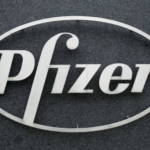
Over the summer, my nephew’s best friend, age 34, died suddenly after receiving his second dose of Pfizer’s COVID-19 vaccine. Ironically, his pregnant wife had pressured him into getting the vaccine so he would be a healthy dad to their soon-to-be-born child.
Since then, we’ve heard many stories of young men developing myocarditis, defined by the Centers for Disease Control and Prevention as “inflammation of the heart muscle,” and pericarditis, which is “inflammation of the outer lining of the heart,” following vaccinations.
The American Heart Association recently published an article warning about the potential dangers of mRNA vaccines. Attorney Marina Medvin tweeted the article on Thursday, only for Twitter to flag it as “misleading content that could lead to real-world harm.”
CDC CAUGHT Hiding Troves Of Booster Shot Data | Breaking Points with Krystal and Saagar
When a reader clicks on the link to the article, a warning pops up that says, “This link may be unsafe. … The link you are trying to access has been identified by Twitter or our partners as being potentially spammy or unsafe, in accordance with Twitter’s URL Policy.”
Following a list of four reasons why the link may have been deemed unsafe — including “violent or misleading content that could lead to real-world harm” — the site gives the reader the option to return to the previous page or ignore the warning and view the objectionable material.
Is Twitter now playing scientist? Will it be policing other papers from major health research publications, or just the ones that challenge its narrative?
A fact-checking organization called Retraction Watch reviewed the article and determined that it deserved an “expression of concern.”
First among its “concerns” was a typographical error: “PLUS” instead of “PULS,” the name of a cardiac test.
Retraction Watch also wanted readers to know that the author of the article, Dr. Steven Gundry, sells a line of supplements and has a YouTube channel.
According to the outlet, Gundry is “a cardiac surgeon by training who now sells dietary supplements on his website. Gundry also sees patients at the Center for Restorative Medicine and International Heart & Lung Institute in California and offers advice on YouTube. But critics have accused Gundry of peddling worthless — if ultimately expensive — advice”.
All of this is obviously beside the point. It’s clear that Gundry’s findings should raise some serious concerns.
The abstract of his paper states that the risk of a new “acute coronary syndrome” within five years increases from 11 percent to 25 percent after one’s second dose of the vaccine. The increased risk lasts for at least two and a half months.
I am not a scientist, but I doubt the AHA would publish Gundry’s paper if it were quackery.
Who appointed Twitter to judge the accuracy of medical data? Even the CDC acknowledgesthe elevated risk of heart issues among young males after mRNA vaccines.
But Big Tech now works hand in hand with the federal government and has a vested interest in seeing that every American gets vaccinated. Thus, any information that might discourage individuals from doing so will be censored.
This is no different than Big Tech’s decision to suppress stories about Hunter Biden’s laptopahead of the 2020 presidential election.
It’s just Big Tech doing its part to shape the political opinions and worldviews of its users.
Secret report surfaces showing that Pfizer was at fault in Nigerian drug tests
A secret Nigerian government report concluded that the drug manufacturer Pfizer undertook an “illegal trial of an unregistered drug” when the company enrolled nearly 100 Nigerian children with meningitis in a trial testing its antibiotic trovafloxacin (Trovan) against ceftriaxone during a 1996 meningitis epidemic.
Families of the children, their attorneys, and the media have been seeking the results of the report for five years without success until the report was leaked last week to the Washington Post (7 May, sect A: 1) by a source who asked to remain anonymous because of “personal safety” concerns.
The Washington Post article said that “aspects of the affair remain mysterious, such as why the report remains confidential.” The head of the investigative panel behind the report, Abdulsalami Nasidi, a virologist and senior Nigerian health official, told the Washington Post he did not know why the report was never released. The panel was set up in 2001 to determine whether the trial was conducted legally (BMJ 2001;322:194).
A class action suit filed on behalf of the children’s families in a federal court in New York alleges that Pfizer did not inform families that trovafloxacin was an experimental treatment and that it failed to obtain informed consent (BMJ 2001;323:592). The lawsuit was dismissed last summer after a judge decided that the US court did not have jurisdiction to hear it, a decision the plaintiffs are appealing.
Court documents filed by the plaintiffs said that “most tragically, Pfizer purposely … low-dosed the control drug” and did not tell families that free, approved treatment was available at the same hospital from Médecins Sans Frontières.
The plaintiffs cited, in turn, a whistleblower lawsuit filed by Juan Walterspiel, a former associate medical director of Pfizer’s central research division, who had responsibility for international protocol development. Dr Walterspiel claimed that Pfizer fired him after he warned the company—before and after the study was conducted—that the study methods employed by Pfizer in the Nigerian trial were “improper and unsafe.” Dr Walterspiel’s action has since been settled.
Pfizer issued a news release on 7 May after being shown the Nigerian government report. It said: “Trovan unquestionably saved lives, and Pfizer strongly disagrees with any suggestion that the company conducted its study in an unethical manner.”
Pfizer stated that it “conducted this trial with the full knowledge of the Nigerian government and in a responsible way consistent with Nigerian law.” The news release also stated that local nurses had explained the experiment to parents of children being treated and had obtained their verbal consent. “Trovan achieved the highest survival rate (94.4%) of any treatment available at the Kano Infectious Disease Hospital, including ceftriaxone (93.8%),” the company added. “For patients receiving treatment at the hospital who were not in the Pfizer program, the survival rate was 89.9%.”
Elaine Kusel, attorney for 30 plaintiff families, said Pfizer’s claim that trovafloxacin outperformed ceftriaxone and community treatment was meaningless, because the children in the trial were not properly randomised. “They [the researchers] simply picked kids out of a line of families waiting for care outside the hospital.”
Critics who question the study’s methodology and data have been stymied by Pfizer’s failure to publish the study. Pfizer acknowledges that the only occasion on which it presented the results was at a meeting of the Interscience Conference on Antimicrobial Agents and Chemotherapy in New Orleans in 1996.
In response to queries by the BMJ , Pfizer denied the allegations made by the plaintiffs in the lawsuit. Although the Pfizer spokesperson Bryant Haskins admitted, in an email message, that the daily doses of ceftriaxone given to the children in the study had been reduced by two thirds, from 100 mg per kg to 33 mg per kg, he claimed they still “significantly exceeded the recommendations of the WHO.”
“There is no FDA [the US Food and Drug Administration] approved dose for ceftriaxone for treating epidemic meningococcal meningitis,” he said, adding that the doses used by Pfizer far exceeded the dose needed to kill meningococcus in cerebrospinal fluid. As for how children had come to be recruited to the study, Mr Haskins said that triage nurses sent children suspected of having meningitis to a building where their parents were offered the option of participating in the study.
“If any parent preferred that his or her child be treated by [Médecins Sans Frontières],” he added, “the child was immediately taken to the appropriate building.”
As for why Pfizer didn’t win FDA approval to use trovafloxacin to treat meningitis in light of its claimed superiority, Mr Haskins said, “Pfizer won approval from the FDA to use Trovan for more than a dozen indications.
“After discussions with the agency, the company withdrew its claim for the treatment of epidemic meningococcal meningitis primarily for regulatory reasons; for example, a requirement to have brain stem auditory evoked response assessments at post-study follow up visits was impossible in the primitive setting in which the trial was conducted.”
Trovafloxacin was withdrawn from European markets after reports of fatal liver disease and since 1999 has been recommended only for emergency use in the US.



